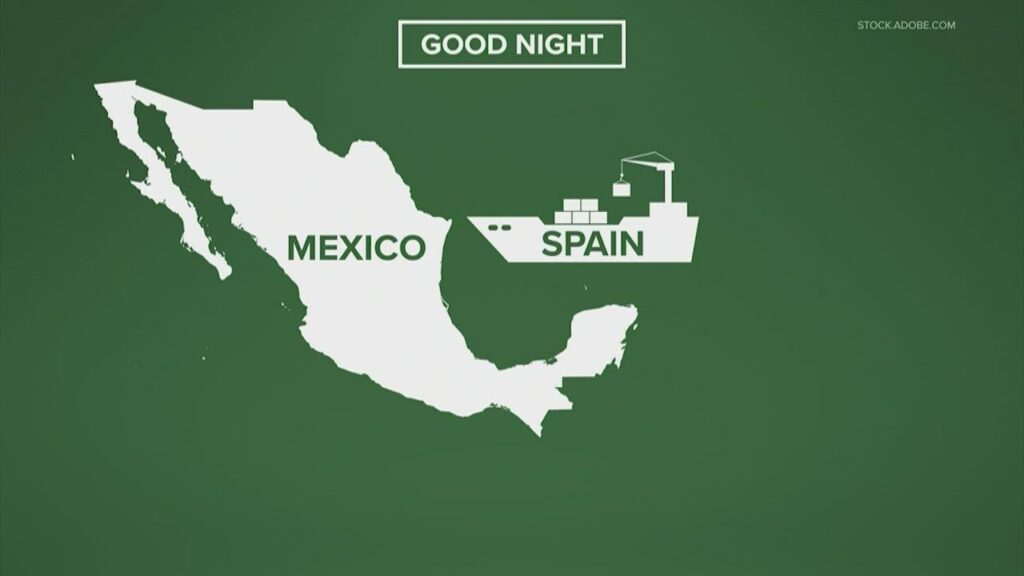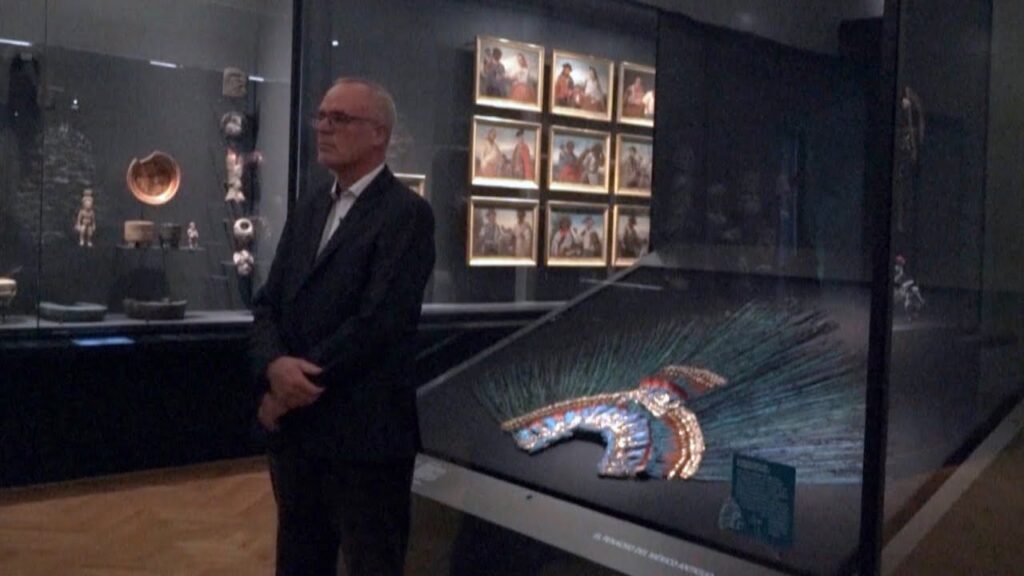Exploring the Legacy of Miguel Alemán Valdés: México’s Post-Revolution Leader
Miguel Alemán Valdés, a name inseparably linked to Mexico’s transformative years after the tumult of the Revolution, became the country’s first civilian president in over two decades when he took office in 1946. His presidency marked the beginning of a dynamic period known as the «Mexican Miracle,» where Mexico experienced unparalleled economic growth and industrialization. Alemán’s ambition to modernize Mexico paved the way for future developments and left a profound impact on the nation’s trajectory towards becoming a contemporary economic force in Latin America.
Alemán’s focus on infrastructure led to the construction of highways, schools, hospitals, and the expansion of the tourism industry, with a new emphasis on attracting international visitors to Mexico’s picturesque landscapes and rich cultural heritage. This drive for modernization fundamentally altered Mexico’s image abroad and helped to bolster a sense of national identity within. Indeed, the rapid urbanization and the growth of cities like Mexico City into bustling metropolises are living testaments to Alemán’s vision for a modernized, prosperous nation. His legacy in tourism continues to spark the curiosity of adventurers and culture enthusiasts around the world.
Despite the controversies surrounding his administration, with allegations of corruption and authoritarianism, Alemán’s impact on Mexico’s socio-economic fabric is undeniable. His policies vastly improved literacy rates, and his aggressive industrialization strategies helped to diminish the economic disparity between rural and urban areas. As history weighs the scales of his complex legacy, travelers exploring Mexico today can still witness the hallmarks of his transformative governance in the nation’s infrastructure, cultural institutions, and economic framework that continue to support Mexico’s journey on the global stage.
Unveiling the Achievements of Miguel Alemán Valdés in Mexican Aviation and Tourism
Miguel Alemán Valdés, a prominent figure in Mexican history, served as the President of Mexico from 1946 to 1952. His tenure marked significant progress in the development of the country’s aviation industry and tourism sector. A visionary leader, Alemán recognized early the potential economic impact of a robust aviation network and a thriving tourism industry on Mexico’s post-war economy.
During his presidency, Alemán oversaw the expansion of Mexico’s civil aviation. He was instrumental in the modernization and construction of airports throughout the country, making air travel more accessible to the Mexican populace and international visitors alike. This initiative greatly facilitated the movement of people and goods, thereby catalyzing the growth of Mexico’s domestic and international trade.
One of Miguel Alemán’s major contributions to Mexican aviation was the establishment of the Mexicana de Aviación as the official airline of the nation. Under his administration, the airline expanded its fleet and began international service, which included flights to the United States and other countries in Central and South America. This not only bolstered Mexico’s connectivity with the world but also paved the way for the country to become a significant player in the international aviation scene.
The impact of Alemán’s policies extended well beyond aviation, as he laid the groundwork for Mexico’s emergence as a top tourist destination. He championed the development of hotel infrastructure and promoted Mexican culture and heritage on the global stage. His administration’s efforts resulted in an unprecedented increase in international visitors, which in turn fueled the growth of the tourism industry and contributed greatly to Mexico’s economic development.
Moreover, Alemán’s foresight in promoting tourism led to the preservation of Mexico’s rich cultural and historical landmarks. He understood the allure of Mexico’s unique heritage, and through careful planning and promotion, he safeguarded these treasures for future generations to appreciate. His presidency thus marks a critical period during which Mexican aviation and tourism achieved new heights, thanks in large part to his dedication and innovative policies.
Miguel Alemán Valdés’s Impact on Modernizing Mexico and Fostering Adventure
Miguel Alemán Valdés was a transformative figure in Mexico’s history, particularly in the area of modernization which affected the tourism and adventure landscape of the nation. Elected in 1946, Alemán was the first civilian president after a long line of military men and sought to project a modern image of Mexico to the world. His presidency initiated significant industrial growth and urban development, making Mexico a more accessible and appealing destination for travelers seeking adventure.
Under Alemán’s administration, infrastructure improvements were a high priority. Roads, airports, and other transportation networks expanded indubitably, easing the way for adventure-seekers and explorers to traverse the country’s varied landscapes. The construction of the Mexican section of the Pan-American Highway, for example, was a monumental project that connected remote areas to the country’s bustling cities, thereby unlocking new destinations for intrepid travelers.
Emphasizing the rich cultural heritage and scenic beauty of Mexico, President Alemán played an instrumental role in promoting tourism. His government’s policies supported the establishment of hotel chains and tourist attractions throughout the country, many of which became gateways to adventures in Mexico’s stunning natural environments. Activities ranging from hiking in the Copper Canyon to exploring Mayan ruins in the Yucatán peninsula became more popular as a result, bolstering adventure tourism.
Moreover, Alemán’s era coincided with the Golden Age of Mexican Cinema, which served as a showcase for Mexico’s diversity and beauty, further enticing international visitors. Celebrities and artists contributed to the glamour and appeal of Mexico as an exotic locale brimming with opportunities for adventure. The country’s improved international reputation was partially attributable to the cinematic depictions of its landscapes and culture, which Alemán astutely leveraged to foster a spirit of discovery among tourists.
The Controversial Policies of Miguel Alemán Valdés and Their Influence on Mexican Society
Miguel Alemán Valdés was President of Mexico from 1946 to 1952, and his tenure was marked by a series of policies that were as transformative as they were contentious. Although his administration was credited with modernizing the Mexican economy, it also enacted reforms that had lasting impacts on the social fabric of the nation. Alemán’s drive for industrialization led to rapid urbanization, altering the landscape and the livelihoods of countless Mexican citizens.
One of the more controversial policies under Alemán was the aggressive land privatization and the subsequent reduction of communal landholdings, known as ejidos. This move was in stark contrast to the agrarian reforms of his predecessors that aimed to protect rural communities and indigenous lands from being appropriated by wealthier, private interests. As a result, rural societies experienced an upheaval as many farmers lost their lands and were forced to migrate to urban areas in search of work, fundamentally changing the demographic map of Mexico.
His economic policies encouraged foreign investment and sought to industrialize Mexico at a rapid pace. To some, this approach delivered a much-needed boost to the Mexican economy and set the foundation for future prosperity. However, critics argue that such policies disproportionately benefited the elite and set the stage for wide economic disparities that have persisted in the country to this day.
Education reform was another area where Alemán’s policies left an indelible mark on Mexican society. His government expanded public education, which was intended to create a more educated workforce that could meet the demands of a modernizing economy. Nevertheless, these reforms also led to cultural homogenization, marginalizing indigenous languages and traditions in the process.
Beyond the domestic sphere, Alemán’s foreign policies also stirred controversy and debate. His administration is notably remembered for strengthening ties with the United States, pivoting Mexico into the sphere of influence of its northern neighbor. However, some nationalistic sectors criticized this orientation, suggesting that it eroded Mexico’s sovereignty and independence in international affairs. This period set a precedent for Mexico’s foreign relations that has continued to influence the country’s global interactions to this day.
Discovering Mexico’s Transformation under Miguel Alemán Valdés: A Traveler’s Perspective
Traveling through Mexico, one cannot help but notice the indelible mark left by former President Miguel Alemán Valdés, whose tenure from 1946 to 1952 was a period of significant change and modernization. His visionary development plan for Mexico, often referred to as the Alemanismo, sought to rapidly industrialize the country, laying the groundwork for modern infrastructure, including vast road networks that today facilitate the exploration of Mexico’s diverse landscapes and cultures.
While wandering the bustling streets of Mexico’s cities, it’s evident how Alemán’s policies influenced the urban landscape. Landmark buildings and public works projects that were started in his era have now become integral parts of Mexican metropolises. A traveler interested in architecture and history can trace the transformation through these structures, providing a concrete sense of the rapid progress that took place during the mid-20th century.
Outside the urban sprawl, Alemán’s impact reverberates through tourist destinations such as Acapulco, which became an iconic seaside resort under his administration. His push for promoting tourism as a national industry forever changed the way travelers experience Mexico, making it a vibrant destination for adventure and relaxation, rich with world-class hotels and amenities that continue to evolve to this day.
The countryside also tells a story of transformation, where agrarian reforms and infrastructure development introduced during Alemán’s time have reshaped the rural economy, impacting the agricultural landscape and creating new opportunities for agritourism. Visitors now have the unique chance to experience traditional farming methods alongside modern agricultural practices, understanding the complex tapestry of Mexico’s growth as a nation.


